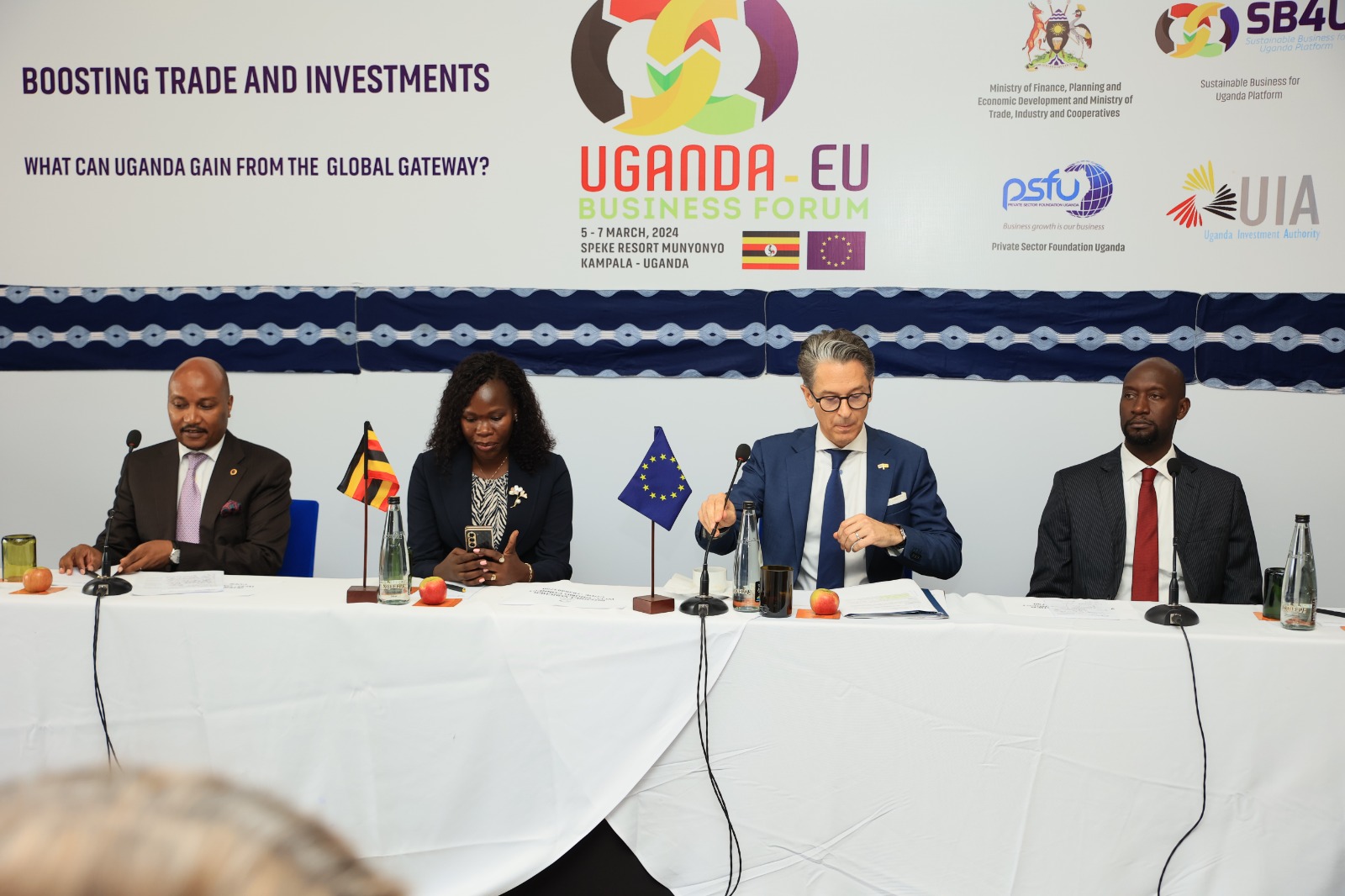
KAMPALA – The European Union-EU has reiterated its demand for standards in the imports from Uganda and other countries because the authorities must ensure the safety of the public.
Amidst this vow, however, the EU says it will continue working with the Ugandan authorities and the private sector to ensure that the country meets the demands of the market.
For close to ten years, the EU has intensified standards, especially on fresh foods, like fruits and vegetables as well as cut flowers, with measures including blocking consignments.
The Ugandan government also suspended the exportation of some agricultural products to the EU until the farmers, processors, and exporters met the required standards.
Ambassador Jan Sadek, the Head of the EU Delegation in Uganda, said the demands of the people cannot be compromised.
The EU is also due to implement a policy where the region will not allow coffee from Uganda that is produced from areas that were forested by 2020, as part of efforts towards fighting degradation.
Sadek says the EU is working with the local authority to ensure that Uganda beats the 2025 implementation deadline without disruptions in the coffee industry.
He was speaking ahead of the 3rd Uganda-European Union Business Forum slated for early next month in Kampala.
At the same time, Evelyn Anite Kajik, the State Minister for Investment and Privatisation, said the country is aware of the impending ban on coffee from formerly forested areas and that the president backed the EU on this.
She says that for Uganda, it is part of the whole effort towards preserving the environment, adding that in any case, the country cannot afford to lose the EU market which takes 65 percent of the country’s coffee.
The forum which will also feature an exhibition at Speke Resort Munyonyo, aims at mobilizing investments into Uganda as well as strengthening Ugandan exports to the EU market.
Trade between the two is valued at about 1.5 billion euros, with Uganda’s exports having a slight edge over the imports, meaning the trade is balanced in Uganda’s favor, a rare occurrence in international trade between a developing country and a developed one.
Amb Sadek says that while the EU claims a 45 percent share of foreign investments in Uganda, the bloc feels there is a lot of need to continue promoting investments between the two.
This, he says is in line with the Forum’s focus on job creation.
The 2024 Uganda-European Union Business Forum will be held under the theme “Boosting trade and investments: What can Uganda gain from the Global Gateway?” Uganda’s products are allowed into the EU quota-free and tariff-free, provided they are not categorized as arms.
The forum strives to boost trade and investments mainly in the key economic sectors like agribusiness, minerals, infrastructure development (especially in energy and digital), and tourism, according to the Uganda Investment Authority (UIA).
UIA Board Chairman, Morrison Rwakakamba appealed to European investors to come to the forum and take advantage of the lucrative areas of investment like hospitality, pathological, and vegetable oil production.
As Uganda Investment Authority, we would like to urge Ugandan entrepreneurs and European investors to take maximum advantage of opportunities that will be created by the third Uganda-European Union Business Forum.
Humphrey Nzeyi, the Chairperson Private Sector Foundation (PSFU) said they are committed to fostering an improved investment climate and stronger business partnerships between Uganda and the European Union.
“By facilitating constructive dialogue and joint action, we can create an environment conducive to business growth and prosperity, benefiting both Ugandan and European companies,” said Nzeyi.





